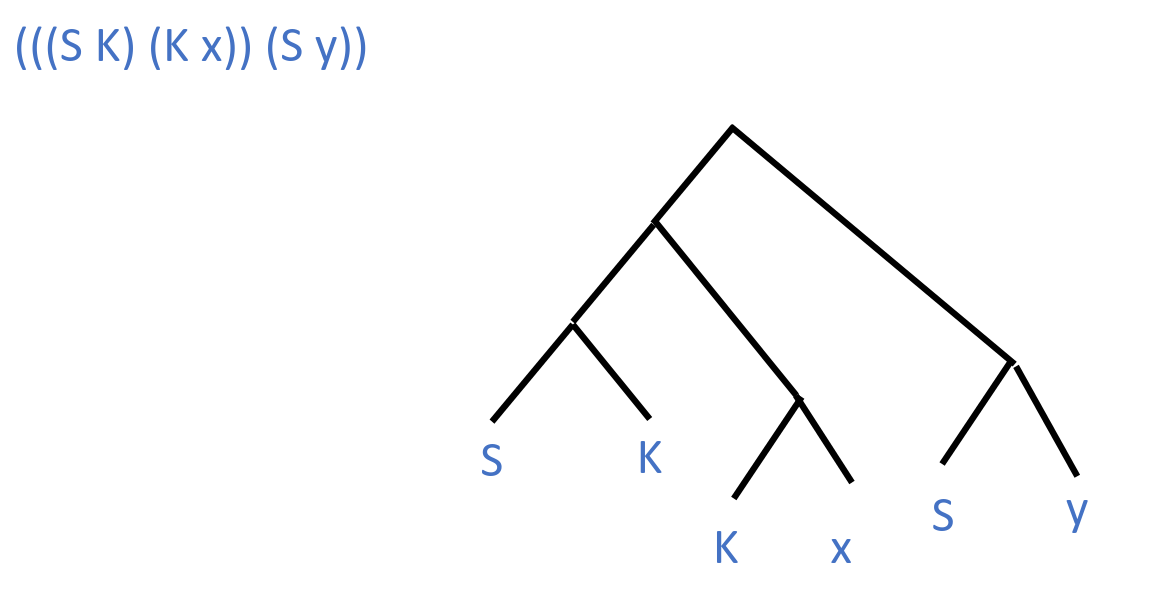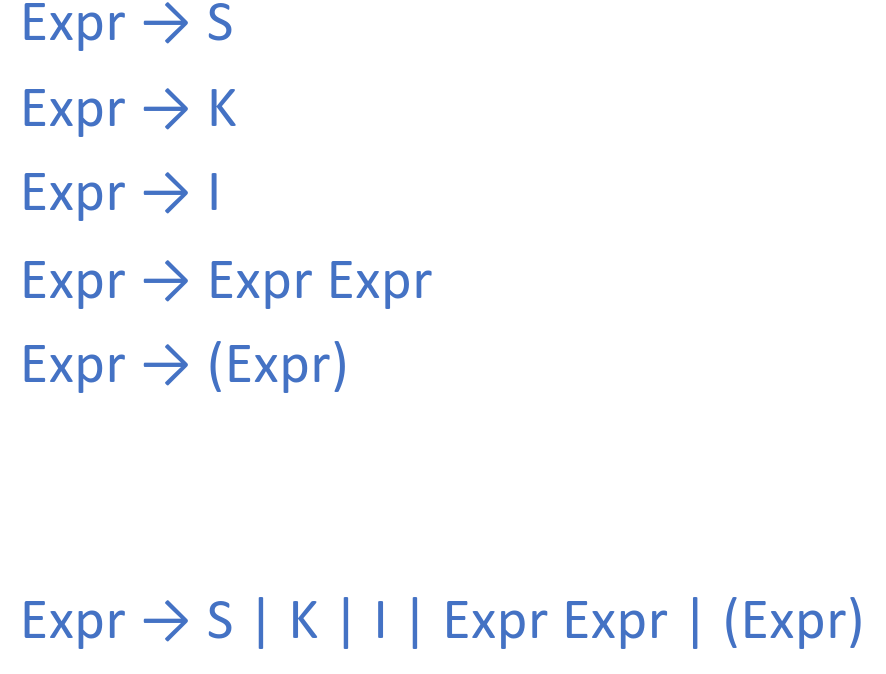The Combinator Calculus
I x -> x : Identity function
K x y -> x : Constant functions
S x y z-> (x z) (y z) : Generalised function application
supporting multiple Arguments
K : A function by itself is a well-formed program, no rules apply.
K x : No rules apply to K with one arg
K x y -> x : K only executes with 2 args
K x y z -> x z : K only uses the first two args
The terms of the SKI calculus are the smallest set such that S, K, I are terms, and if x and y are terms, then x y is a term. Terms are trees.
 Context-free grammar
Context-free grammar
 It is similar to Lambda Calculus, but without the concept of closures, meaning it avoids the issue of opaque closures at the cost of not being able to form abstractions at all and having to encode combinators as rewrites.
One famous example of a programming language based on the Combinator Calculus is
It is similar to Lambda Calculus, but without the concept of closures, meaning it avoids the issue of opaque closures at the cost of not being able to form abstractions at all and having to encode combinators as rewrites.
One famous example of a programming language based on the Combinator Calculus is